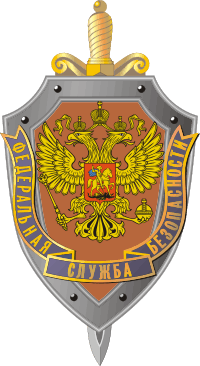
Grom (missile)
The Grom (meaning "thunder" in Polish) is a man-portable air-defense system produced in Poland. It consists of a 72 mm anti-aircraft missile set with a flight speed of 650 m/s, as well as a single-use launcher, re-usable gripstock and thermal battery coolant assembly electric unit. The full name of the system is PZR Grom, PZR standing for Przeciwlotniczy Zestaw Rakietowy (literally anti-air rocket-propelled system).
It is designed to target low-flying helicopters and aeroplanes. As such, the Grom missile is used by other surface-to-air defence systems of Polish design, including ZSU-23-4MP Biała, ZUR-23-2 kg and POPRAD self-propelled artillery system. It should not to be confused with versions of the Zvezda Kh-23 air-to-surface missile built under licence in Yugoslavia/Serbia as the Grom-A and Grom-B.
History
Initially at least since the 1970s the MESKO metal works in Skarżysko-Kamienna mass-produced license-built Soviet Strela-2M (SA-7 Grail) surface-to-air missiles, designated in Poland as Strzała-2M. However, when these became outdated in the late 1980s the lead designers prepared the works to produce a more modern Soviet design, the 9K38 Igla (SA-18 Grouse). However, Poland left the Soviet bloc in 1990 and the license was declined, thus leaving Poland with no modern MANPADS at hand.

Missile
In modern usage, a missile is a self-propelled precision-guided munition system, as opposed to an unguided self-propelled munition, referred to as a rocket (although these too can also be guided). Missiles have four system components: targeting and/or missile guidance, flight system, engine, and warhead. Missiles come in types adapted for different purposes: surface-to-surface and air-to-surface missiles (ballistic, cruise, anti-ship, anti-tank, etc.), surface-to-air missiles (and anti-ballistic), air-to-air missiles, and anti-satellite weapons. All known existing missiles are designed to be propelled during powered flight by chemical reactions inside a rocket engine, jet engine, or other type of engine. Non-self-propelled airborne explosive devices are generally referred to as shells and usually have a shorter range than missiles.
In ordinary British-English usage predating guided weapons, a missile is "any thrown object", such as objects thrown at players by rowdy spectators at a sporting event.
Missile (1987 film)
Missile is a 1987 American documentary film by Frederick Wiseman. It chronicles the 14 week training course for the men and women of the United States Air Force who are charged with manning the ICBM silos in remote places like Minot AFB and Whiteman AFB. The film shows discussions of the ethics of nuclear war, shows scenes from the daily lives of trainees, and shows demonstrations of training exercises such as counterterrorism, the launching of nuclear missiles, the command and control process, and basic military training. Most scenes in the film are of classroom training, interspersed with exercises in training facilities. The film includes a scene of an Air Force church service memorial for the astronauts killed in the Space Shuttle Challenger disaster.
In the typical style of Wiseman's films, the documentary is unadorned by commentary, narration, or music.
References
Missile (disambiguation)
A missile is a self-propelled guided projectile used as a weapon towards a target.
Missile may also refer to:
See also
Grom
Grom, meaning 'thunder' in several Slavic languages, may refer to:
Military
Other uses

Federal Security Service
The Federal Security Service of the Russian Federation (FSB; Russian: Федеральная служба безопасности Российской Федерации (ФСБ), tr. Federal'naya sluzhba bezopasnosti Rossiyskoy Federatsii; IPA: [fʲɪdʲɪˈralʲnəjə ˈsluʐbə bʲɪzɐˈpasnəstʲɪ rɐˈsʲijskəj fʲɪdʲɪˈratsɨjɪ]) is the principal security agency of Russia and the main successor agency to the USSR's Committee of State Security (KGB). Its main responsibilities are within the country and include counter-intelligence, internal and border security, counter-terrorism, and surveillance as well as investigating some other types of grave crimes and federal law violations. It is headquartered in Lubyanka Square, Moscow's centre, in the main building of the former KGB. The Director of the FSB since 2008 is army general Aleksandr Bortnikov.
The immediate predecessor of the FSB was the Federal Counterintelligence Service (FSK) of Russia, itself a successor to the KGB: on 12 April 1995, Russian president Boris Yeltsin signed a law mandating a reorganization of the FSK, which resulted in the creation of the FSB. In 2003, the FSB's responsibilities were widened by incorporating the previously independent Border Guard Service and a major part of the abolished Federal Agency of Government Communication and Information (FAPSI). The two major structural components of the former KGB that remain administratively independent of the FSB are the Foreign Intelligence Service (SVR) and the State Guards (FSO).

Grom (company)
Gromart S.p.A., traded as Grom, is an Italian gelato company based Turin. Grom's first Italian store was established in 2003 by a Federico Grom and Guido Martinetti. It had further expanded internationally and established branches in several regions, namely New York City, Los Angeles, Malibu, Paris, Jakarta, Osaka and Dubai.
On 1 October 2015, the consumer goods international Unilever acquired the company for an undisclosed fee.
References
External links
Podcasts:

